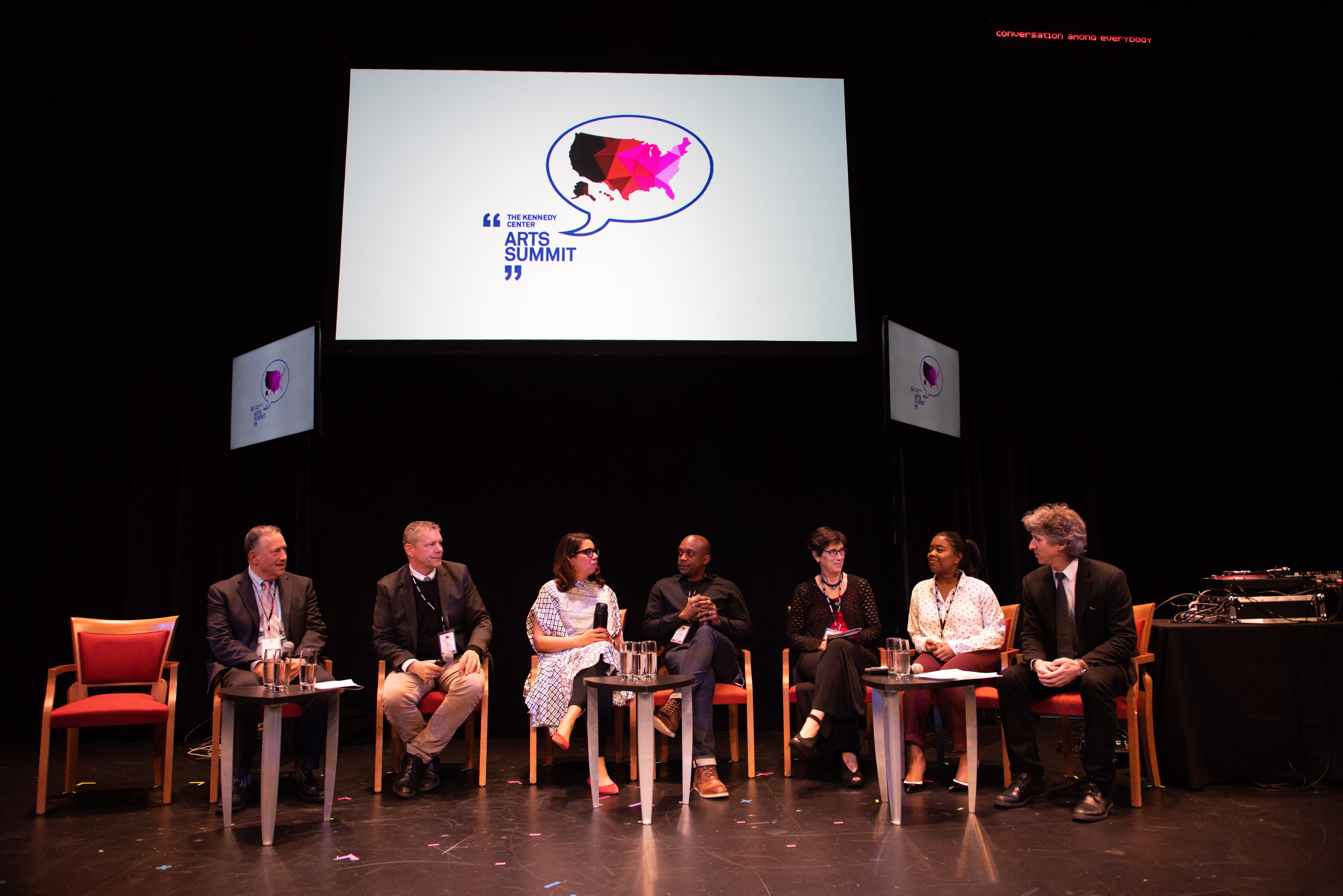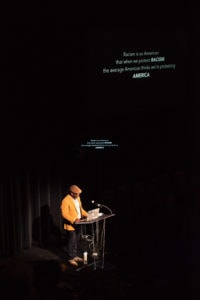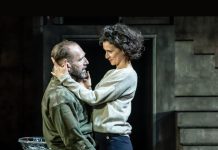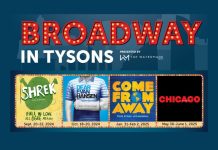The time is most certainly right for the arts to be disruptive; to assert and insert itself in national discussions about social justice and inclusion. Turbulent times call out for the arts–not merely competency in coding and a thumb on the scales algorithms–if America is to make it through these demanding political and cultural times. So, this is a major shout-out to the folks that planned this year’s Arts Summit at The Kennedy Center.

What The Kennedy Center pulled off at the Arts Summit (held on Monday, April 16) was visionary. In a prescient move, the Arts Summit was held on the same day the Pulitzers announced their awards and became disruptive in their own way. This year, the Pulitzer for music went to Hip Hop artist Kendrick Lamar (which has caused quite a stir in some circles), and the Pulitzer in drama to Martyna Majok for her recent work about those usually unseen on America’s stages, individuals with physical disabilities. Majok also has penned an earlier dramatic work about immigrants trying to make it in America.
The Kennedy Center Arts Summit was billed as a day-long event to discuss “the collective future we want and how can we use arts, creativity, culture, and technology to get us there? How do we build a future where the markers of certain identities are no longer indicators of barriers or poor outcomes? Through the landscapes of education, health, and finite resources, we will explore stories of existing, visionary projects and engage in dialogues with artists, futurists, scientists, engineers, and policymakers that help us catalyze new projects and partnerships, and bring us closer to activating a future where we all thrive.”
Check that off as done.
From the very opening rendition of a haunting national anthem, it was clear there was not going to be a usual event. For this “National Anthem” had several iterations, each successive rendition having more notes missing until an ending with a long silence. As we learned, the missing notes represented those incarcerated in America. The number–a truly powerful remix–was entitled “Deconstructed Anthems” and featured Ekene Ijeoma and Betty Carter Jazz Ahead Alumni. Watch it below.
There were other notable performances throughout the day, usually as opening musical numbers for the many sessions. The musical numbers became like a book’s preface. Several performances also included the voice of President John F. Kennedy speaking of his vision for landing on the moon. Over the day-long event, the “Moonshot” became shorthand for the summit’s central question: if President Kennedy could excite the nation about landing on the moon in 1962, could the arts excite Americans to pursue education, health and well-being, social justice and equity for all in 2018?
The musical performances swept forward throughout the day, concluding with the Kennedy Center Citizen Artist Fellows, who led a deeply spiritual, powerful interpretation of “Lift Every Voice and Sing.” A chorus of children and young musicians, all El Sistema students, performed with the Fellows. The students provided fresh energy and renderings to Baby Boomer anthems such as John Lennon’s “Imagine” and Leonard Bernstein’s visionary “Somewhere” from West Side Story.
But, the Arts Summit was far from simply a day of performances. It was a full day of exploration, reaching beyond individual life experiences into a mosaic of collaborative interactions and learning. After greeting from The Kennedy Center senior leadership including Deborah F. Rutter, David M. Rubenstein, and Mario Rossero, there were conversations and listening sessions with artists and experts. There were also several small group work sessions. Even lunch had its work session component, as we delved into issues surrounding how the arts can connect with education, health and wellness issues in these days of finite resources.

Phrases and questions that have stuck with me:
-Marc Bamuthi Joseph stating that “racism is so American that when we protest racism, the average American thinks we are protesting America.”
-As America becomes less binary and more fluid, how can the arts help achieve social justice?
-With remixes of old tunes, we have the opportunity to hear notes we may have missed before from new voices.
-Artists have a need for access to capital, not just government grants.
-Don’t quickly dismiss small changes, on the way to big strategic goals.
-How can science and the arts “talk” to each other; and hear each other? Isn’t that stronger?
-How can the arts help move those in need from despair to hope?
-How can the arts prosper during a time of government budget pressures?
-How can the arts be audacious, if not radical?
The Arts Summit’s concluding remarks were delivered by author/educator Eric Liu. He spoke with passion and eloquence about the arts and its place in America. Liu spoke of an America with changing demographics and also coming to terms with its past. His vision was to make sure the people know they are powerful and that the arts can be an engine for social justice. Liu wanted his listeners to know they can help shape America’s collective future.
Let me leave with a question that I have been struggling with. President Kennedy’s “Moonshot” vision was more than 50 years ago. It was a clarion call that many a Baby Boomer will remember; a call that the government can do good and that we should trust the government and our leaders. I couldn’t let go of the thought that many today no longer have trust in their government leaders or authority figures in general. Would other Americans (say those under 40) rather have Elon Musk take us to a distant planet and trust, perhaps, Mark Zuckerberg to provide the vision for the nation’s future, rather than a politician? Just asking.
The Kennedy Center’s Arts Summit was held on Monday, April 16, 2018, at The John F. Kennedy Center for the Performing Arts Theatre Lab, 2700 F Street, NW, in Washington, DC.




